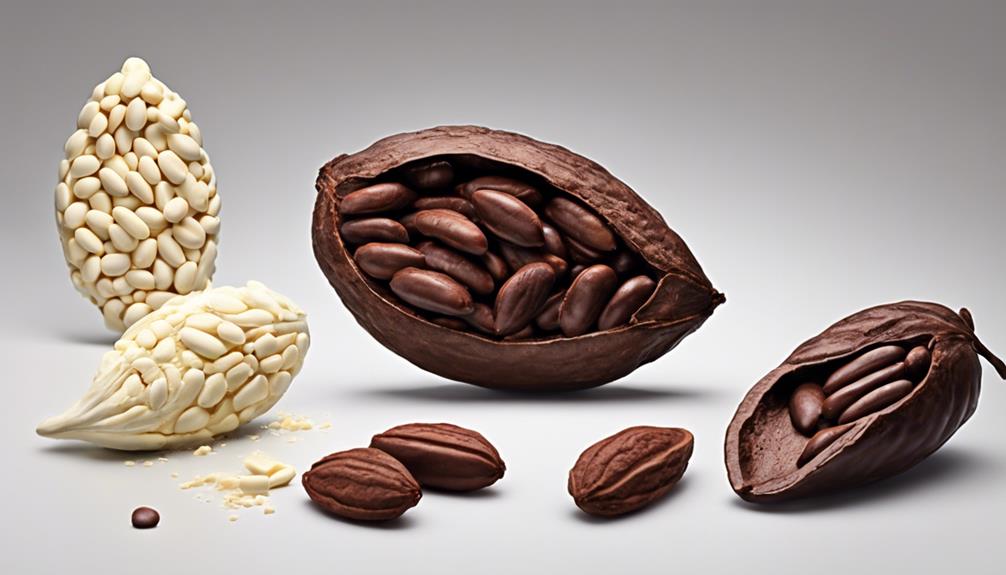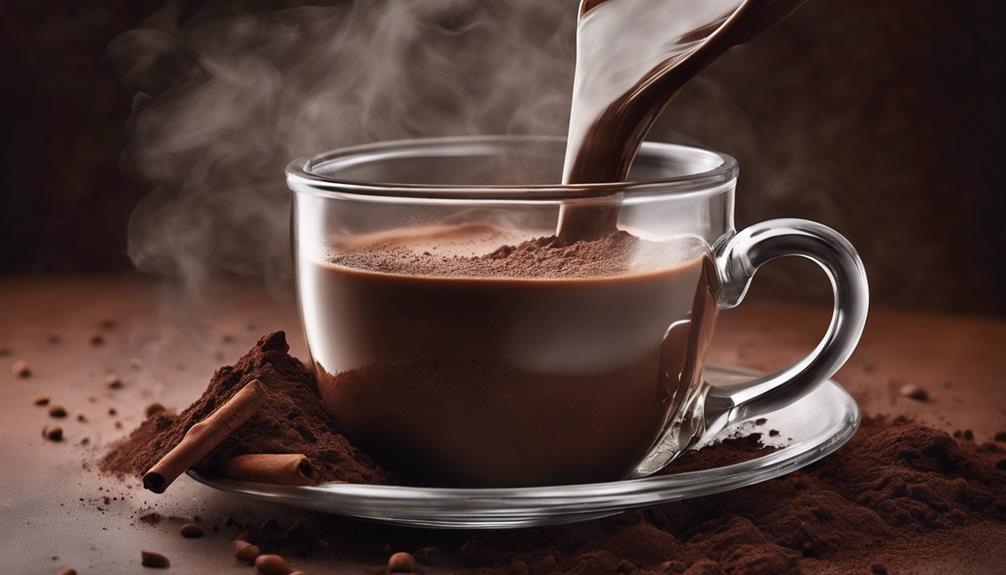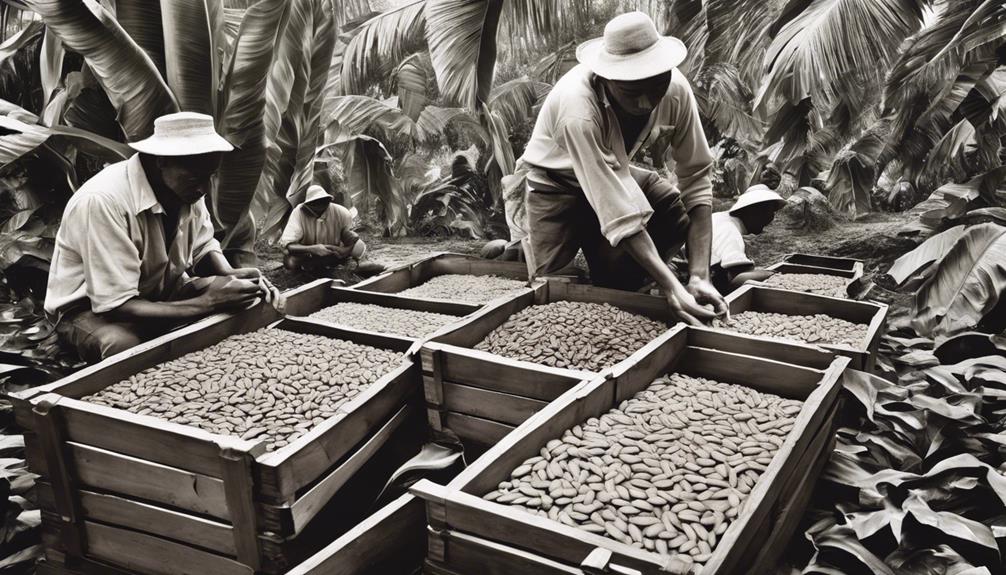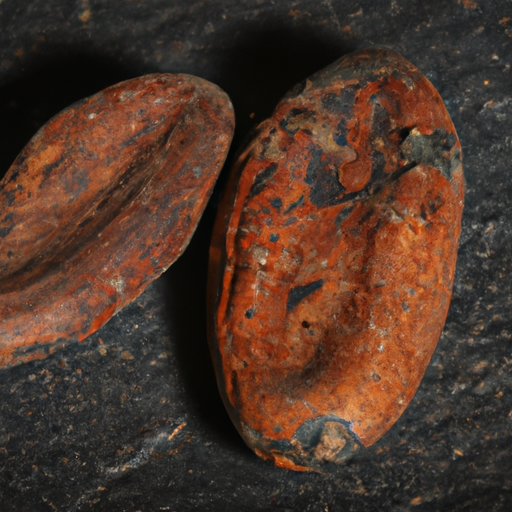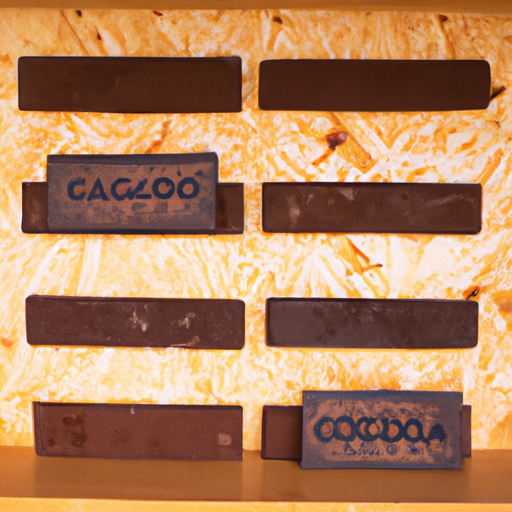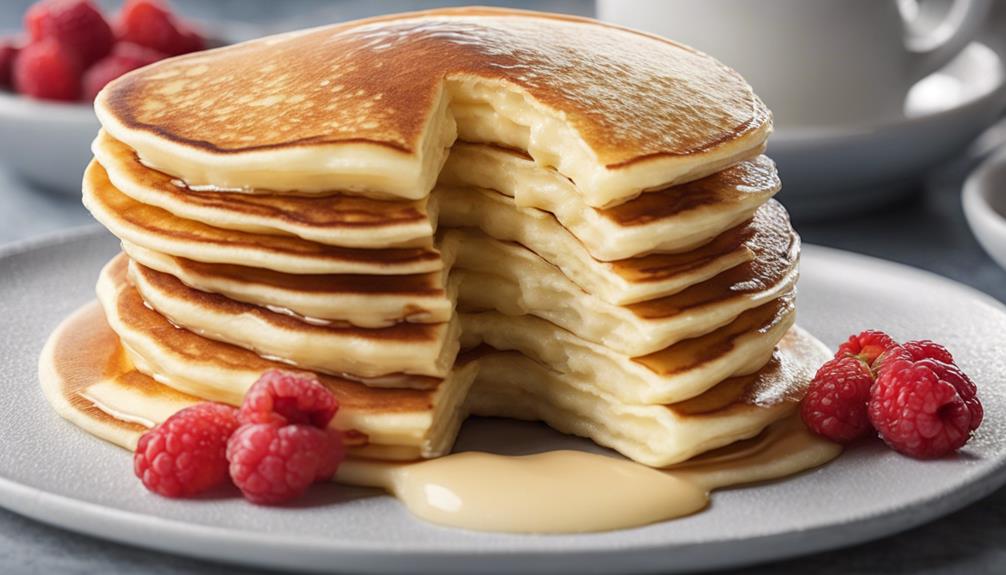Cocoa butter is caffeine-free, making it a popular choice for skincare products for those looking to avoid caffeine in their beauty routines or during pregnancy. It is a safe and gentle option for moisturizing the skin, with no caffeine content. To learn more about the differences in caffeine content in chocolate products and its impact on energy levels, continue exploring the topic.
Key Takeaways
- Cocoa butter does not contain caffeine naturally.
- Safe for use in skincare during pregnancy.
- Minimal caffeine content, safe for most.
- Often confused with cocoa solids' caffeine.
- Ideal for those avoiding caffeine.
Cocoa Butter Vs. Cocoa Solids Caffeine Content
When comparing cocoa butter and cocoa solids for caffeine content, it's important to note a significant difference between the two. Cocoa butter, derived from cocoa beans, is a luxurious moisturizer often associated with chocolate, but it doesn't contain caffeine.
On the other hand, cocoa solids found in chocolate do contain caffeine. The amount of caffeine in cocoa butter is negligible compared to cocoa solids, making it a safe choice for those looking to avoid caffeine's stimulating effects.
The misconception that cocoa butter contains caffeine stems from its connection to cocoa beans, which are also used to make chocolate. This misconception has led some to believe that using cocoa butter topically could expose them to caffeine, but it isn't the case.
Consequently, using cocoa butter as a moisturizer during pregnancy is considered safe, as it doesn't pose a risk of caffeine exposure to the skin or body.
Caffeine Presence in Dark Chocolate
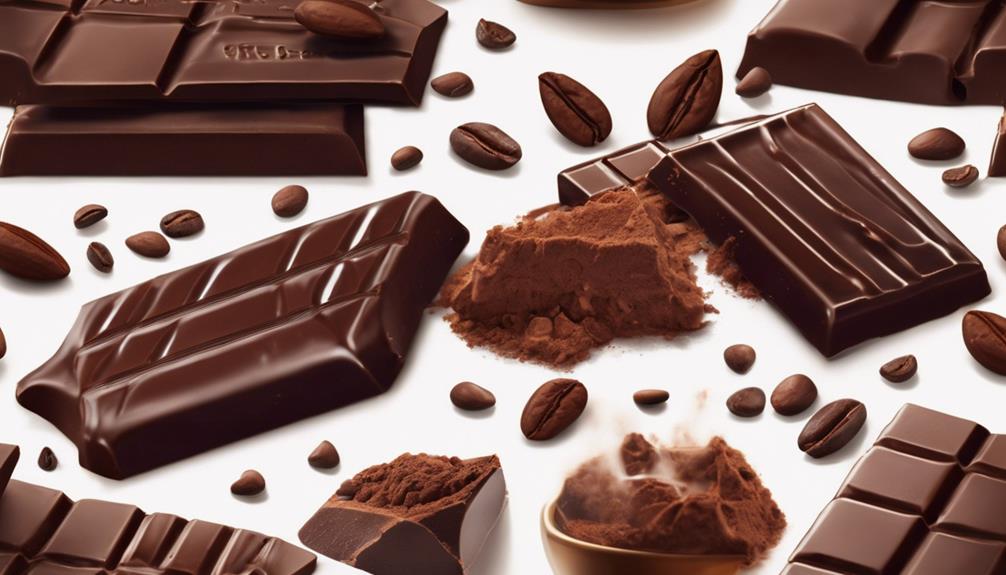
Dark chocolate, as a delectable treat, contains caffeine sourced from its cocoa solids. The caffeine content in dark chocolate can vary depending on the percentage of cocoa solids used in its production. The higher the cocoa solid content, the more caffeine the dark chocolate will have.
This caffeine comes from the beans of the cacao trees, which are roasted and processed to create cocoa solids. Unlike white chocolate, which doesn't contain any cocoa solids, dark chocolate provides a source of caffeine, although in lower amounts compared to a standard cup of coffee.
It's crucial to bear in mind the caffeine intake from dark chocolate, particularly for those sensitive to caffeine. So, next time you indulge in a piece of dark chocolate, remember that you're not only enjoying a rich and flavorful treat but also consuming a small amount of caffeine from those cocoa solids.
Absence of Caffeine in White Chocolate
White chocolate shines for its complete absence of caffeine, making it a popular choice for those seeking a caffeine-free treat. When you immerse yourself in white chocolate, you're enjoying a creamy and sweet experience that's entirely caffeine-free. Here are some reasons why white chocolate is a fantastic choice for those looking to avoid caffeine:
- Pure Indulgence: Immerse yourself in the world of white chocolate without worrying about caffeine content.
- Sweet Sensation: Enjoy the sweet and luscious taste of white chocolate without any caffeine stimulation.
- Smooth Texture: Experience the velvety smoothness of white chocolate that's perfectly caffeine-free.
- Guilty Pleasure: Treat yourself to a guilt-free delight with white chocolate that won't keep you awake.
- Versatile Delight: White chocolate can be used in various recipes, adding a creamy touch without any caffeine worries.
Impact of Added Caffeine in Chocolate Products
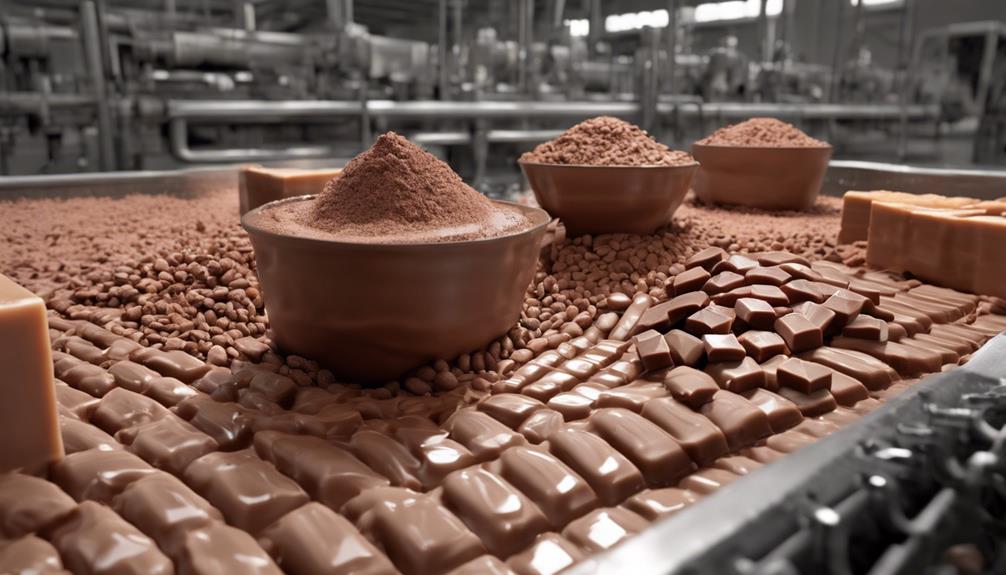
The inclusion of additional caffeine in chocolate products can greatly influence their stimulant effects. When caffeine is added for energy enhancement, it can increase the overall caffeine content in the chocolate. This means that consuming such products may lead to a more pronounced stimulant effect compared to chocolate without added caffeine.
As consumers, it's vital to check labels on chocolate products to determine if they contain added caffeine. Being aware of the presence of added caffeine can help individuals manage their overall caffeine intake, especially if there's a desire to limit it. By paying attention to labels and understanding the impact of added caffeine in chocolate, consumers can make informed choices about their consumption.
Clarifying Cocoa Butters Caffeine Content
Contrary to common belief, cocoa butter doesn't naturally contain caffeine. This misconception often arises from its inclusion in some cellulite creams. Despite this, cocoa butter is safe for topical use during pregnancy, even though it contains minimal caffeine.
Doctors may mistakenly warn against cocoa butter due to its association with caffeine, but research shows that it poses no harm to babies when consumed in moderate amounts. The caffeine content in cocoa butter is minimal and harmless when used topically, making it a safe choice for skincare products.
Frequently Asked Questions
Does Cocoa Butter Have Any Caffeine?
Cocoa butter does not have caffeine. It's generally safe, even during pregnancy. The little caffeine present in cocoa butter products is unlikely to affect you. I wouldn't worry about it unless you have specific health concerns.
Does Cocoa Butter Have Caffeine and Theobromine?
Cocoa butter does not contain caffeine or theobromine, making it safe for topical use. It's a great choice for skincare. Enjoy its nourishing benefits without worrying about stimulating effects found in cocoa solids.
What Does Cocoa Butter Contain?
Just like a soothing melody, cocoa butter contains a rich blend of fatty acids and antioxidants. Its nourishing properties make it a luxurious treat for the skin, leaving it soft and supple.
How Much Caffeine Is in Cocoa Vs Coffee?
When comparing caffeine content, cocoa has about 230 mg per 100 grams, while coffee varies from 2 to 95 mg per 237 ml cup. The difference is significant, making coffee a more potent source of caffeine.
Is Cocoa Butter a Source of Caffeine?
Cocoa butter is not a source of caffeine. Despite the popular belief, unveiling caffeine in cocoa reveals that it’s actually found in the cocoa solids, not the fat. Cocoa butter is the fatty component of cocoa beans and contains no caffeine.
Conclusion
Finally, cocoa butter doesn't contain caffeine. While cocoa solids found in dark chocolate do contain caffeine, white chocolate made from cocoa butter does not.
It's important to read labels carefully to understand the caffeine content in chocolate products. Remember, cocoa butter is a delicious ingredient in many treats, without the added kick of caffeine.
Enjoy your chocolate in moderation and savor the rich flavor of cocoa butter without the buzz of caffeine.

